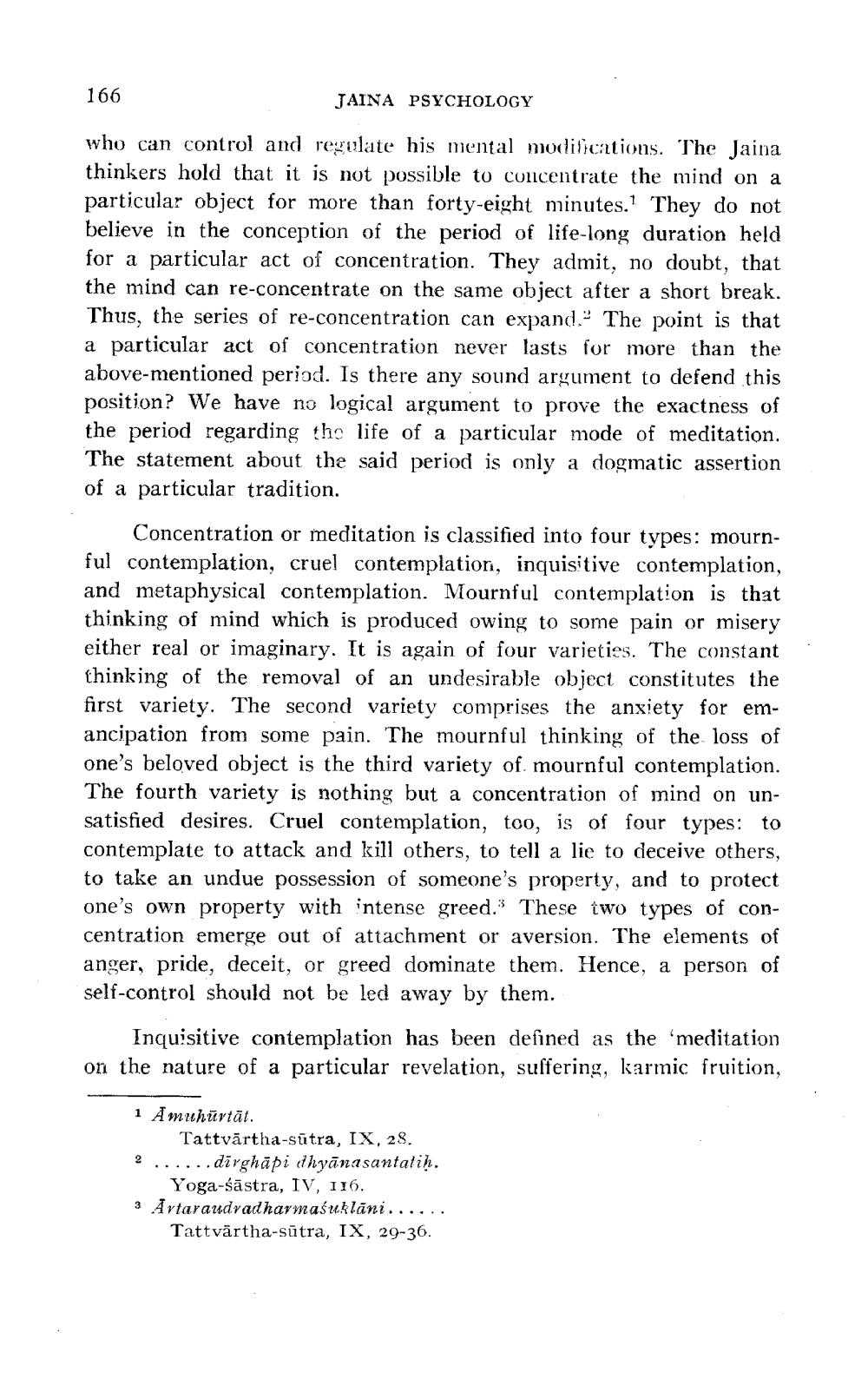________________
166
JAINA PSYCHOLOGY
who can control and regulate his mental modifications. The Jaina thinkers hold that it is not possible to concentrate the mind on a particular object for more than forty-eight minutes. They do not believe in the conception of the period of life-long duration held for a particular act of concentration. They admit, no doubt, that the mind can re-concentrate on the same object after a short break. Thus, the series of re-concentration can expand." The point is that a particular act of concentration never lasts for more than the above-mentioned period. Is there any sound argument to defend this position? We have no logical argument to prove the exactness of the period regarding the life of a particular mode of meditation. The statement about the said period is only a dogmatic assertion. of a particular tradition.
Concentration or meditation is classified into four types: mournful contemplation, cruel contemplation, inquisitive contemplation, and metaphysical contemplation. Mournful contemplation is that thinking of mind which is produced owing to some pain or misery either real or imaginary. It is again of four varieties. The constant thinking of the removal of an undesirable object constitutes the first variety. The second variety comprises the anxiety for emancipation from some pain. The mournful thinking of the loss of one's beloved object is the third variety of mournful contemplation. The fourth variety is nothing but a concentration of mind on unsatisfied desires. Cruel contemplation, too, is of four types: to contemplate to attack and kill others, to tell a lie to deceive others, to take an undue possession of someone's property, and to protect one's own property with intense greed. These two types of concentration emerge out of attachment or aversion. The elements of anger, pride, deceit, or greed dominate them. Hence, a person of self-control should not be led away by them.
Inquisitive contemplation has been defined as the 'meditation on the nature of a particular revelation, suffering, karmic fruition,
1 Amuhürtät.
Tattvartha-sutra, IX, 28. ...dirghapi dhyanasantatiḥ. Yoga-sastra, IV, 116.
3 Artaraudradharmasuklāni.... Tattvärtha-sutra, IX, 29-36.
2




